It’s 2 p.m. and you’re yawning.
Your eyes are getting heavy and you’re thinking, “Boy, I could use a nap right now.”
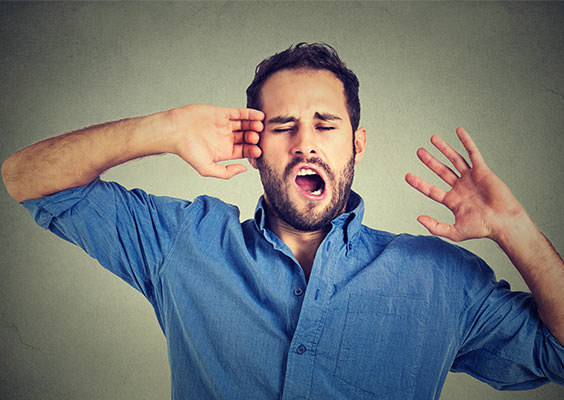
Trouble is, you already get eight hours of sleep every night. You wake each morning refreshed and ready to conquer the world.
Fatigue Causes
So why are you so tired in the middle of the afternoon?
Most people believe fatigue, naps and poor sleep are inevitable as we age. So do many doctors, which is why they’ll simply tell you to get more sleep at night. Or even worse, they’ll write you a prescription for a sleeping pill.
But they’re wrong. It’s more complicated than that, and a pill won’t always fix the problem.
It could be that your internal body clock is out of sync. Or should I say, your circadian clock.
What is your circadian rhythm?
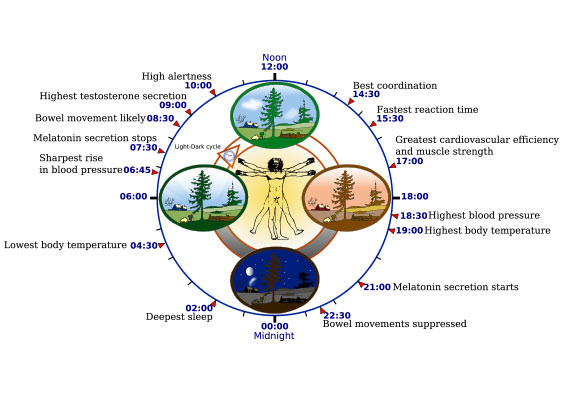
This internal “clock” controls your periods of sleepiness and wakefulness throughout the day.
Your circadian rhythm rises and dips at different times. For most adults, the strongest sleep drive occurs between 2 a.m. and 4 a.m. and between 1 p.m. and 3 p.m.
The sleepiness you experience during these circadian dips is less intense when you have had sufficient sleep. It’s more intense when you are sleep deprived.
The circadian rhythm also causes you to feel more alert at certain points of the day.
What controls your body clock?
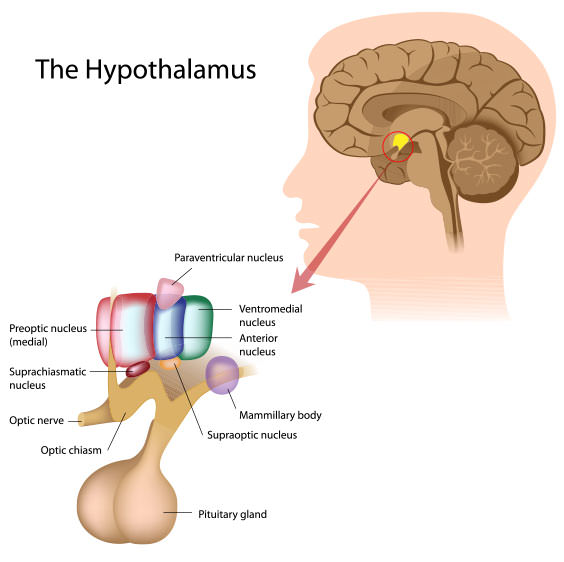
Your body clock is controlled by a group of nerve cells in your brain’s hypothalamus that respond to light and
dark signals.How can light affect your sleep?
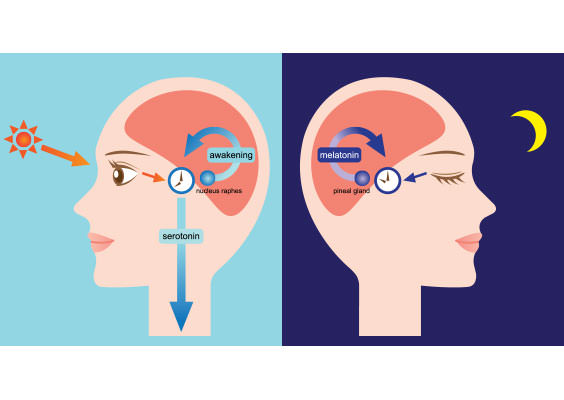
When light travels from the optic nerve of the eye to these nerve cells, it’s like the alarm on a clock. It signals it’s time to wake up. The cells then alert other parts of your brain that control hormones, body temperature and other functions that make you feel sleepy or awake.
The release of melatonin
For example, at daybreak the cells trigger a rise in body temperature and produces hormones like cortisol. In the evening, they respond to darkness by releasing melatonin. This hormone is produced when the eyes signal that it’s dark and time to sleep. That’s why melatonin levels rise in the evening and stay elevated throughout the night.
This explains why we have jet lag when traveling to other time zones. The shift in time and light cues the brain and forces the body to alter its normal pattern to adjust. As a result, travelers have more difficulty thinking and performing well.
But these symptoms can also occur in everyday life. When we keep long and irregular hours, our circadian rhythm is disrupted. And that can result in more serious problems than just daytime fatigue.
A recent study found that irregular sleep-wake cycles may be risk factors for Parkinson’s disease.1 Another study links disruption of circadian rhythms to inflammatory bowel disease.2
Natural way to overcome fatigue and make your body perform like clockwork
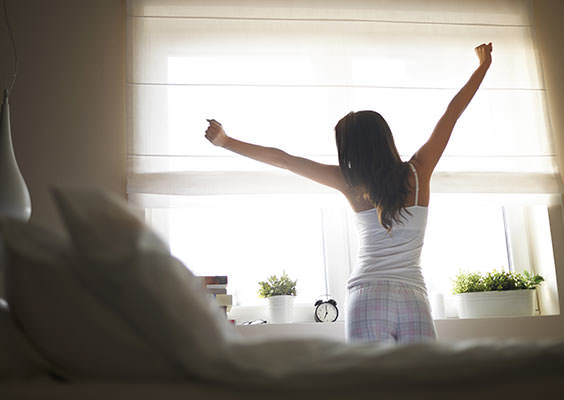
To make sure your body clock is properly “set” and avoid daytime fatigue, here’s what I recommend:
- Keep lights dim at night as bedtime approaches. Keep your tablets and smartphones out of the bedroom.
- Get into bright light as soon as possible in the morning.
- Allow plenty of time for quality sleep — at least seven to eight hours per night.
- Keep a regular sleep schedule. This is more important than the actual number of hours you sleep.
If you have difficulty falling asleep, I recommend a melatonin supplement.
Your body is already equipped with this natural sleep inducer. But as you get older, the amount of melatonin in your body slowly disappears. By the time you turn 65, your supply of melatonin is almost completely depleted. And as the level of melatonin drops, the quality of your sleep gets worse.3
If you don’t have the right amount of melatonin in your bloodstream, you’ll end up tossing and turning.
But don’t take melatonin in pill form. Your gut destroys most of it. Research shows you could be getting only 1% into your system this way.4
Take melatonin the most effective way. Orally, through a spray delivery. A few pumps before bed and your body has all it needs to sleep the whole night through.
Experiment with dose and timing for best results. When it comes to melatonin, often less is more.
To Your Good Health,
![]()
Al Sears, MD, CNS
1. E Lauretti, A Di Meco, S Merali, D Pratic. Circadian rhythm dysfunction: a novel environmental risk factor for Parkinson’s disease. Molecular Psychiatry, 2016; DOI:10.1038/MP.2016.47
2. Robin M. Voigt, Christopher B. Forsyth, Stefan J. Green, Ece Mutlu, Phillip Engen, Martha H. Vitaterna, Fred W. Turek, Ali Keshavarzian.Circadian Disorganization Alters Intestinal Microbiota. PLoS ONE, 2014; 9 (5): e97500 DOI: 10.1371/journal.pone.0097500
3. Zhdanova et al. “Endogenous melatonin levels and the fate of exogenous melatonin: age effects.” Journal of Gerontology. 1998. 53A:B293–B2
4. Fourtillan et al. “Bioavailability of melatonin in humans after day-time administration of D7 melatonin.” Biopharmaceutics & Drug Disposition. 2000. 21(1):15-22
